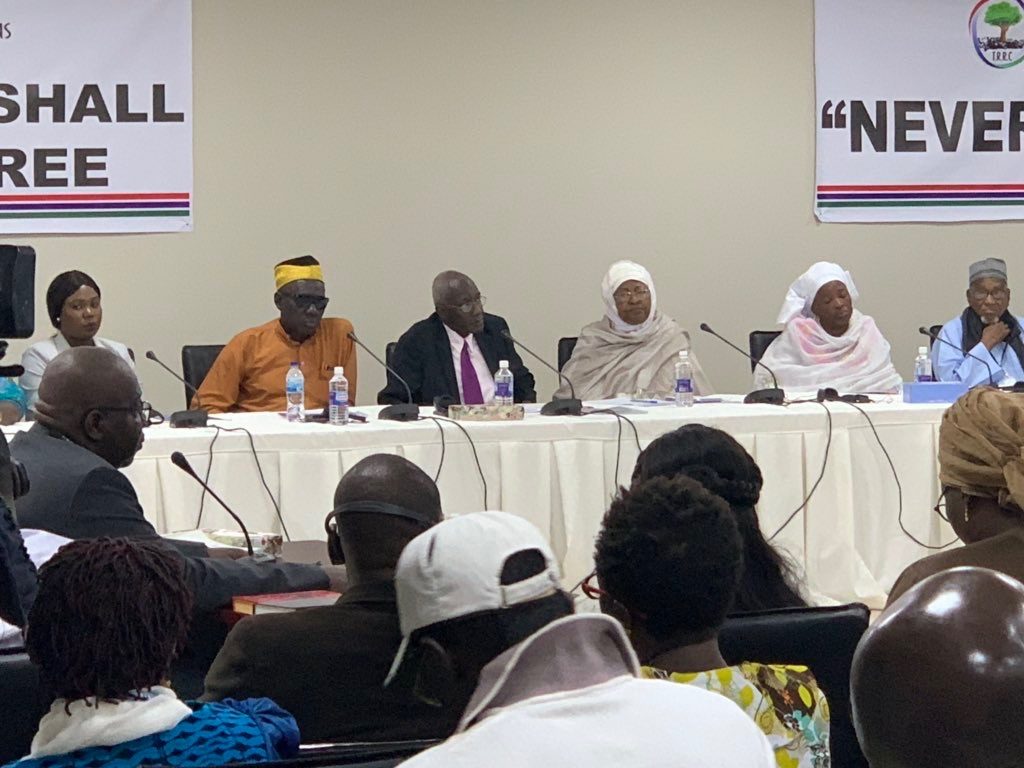
The Gambia urgently needs healing and reconciliation in diverse areas of our national life. From independence in 1965, we have been through various experiences that have created pain and suffering.
As more and more first-generation leaders die off, there is urgency in getting the narratives of these leaders so that we can learn. The Gambia government and the Truth, Reconciliation and Reparation Commission (TRRC) must be committed to searching for national healing and reconciliation based on keeping memories alive and interrogating them for better understanding.
In so doing, we must seek answers to critical questions. What should we remember? How should we not forget that what we may ultimately agree upon should be recognised? Do we even need to remember unpleasant experiences, mainly because they may bring up unpleasant memories and start a new round of crisis?
In short, how do we respond to unpleasant memories? In seeking answers to these questions, we should never forget that in “Healing the Nation” — Memory Matters.
The Truth, Reconciliation, and Reparation Commission (TRRC) is expected to submit its final report before the December Presidential elections to President Adama Barrow.
When the Commission began its work, it decided that its public hearings will be transparent and broadcast live for all to see and hear the truth in real-time. There is nothing better than telling the truth in the open.
According to the Chairman of the Truth, Reconciliation and Reparation Commission (TRRC), Dr. Lamin J. Sise that “during the 871 hearings, The Gambia and indeed the world heard from 392 witnesses, the majority of whom were victims of atrocities meted out to innocent civilians by the State, its agents or individuals sponsored by both. The witnesses appearing before the Commission also included confessed perpetrators”.
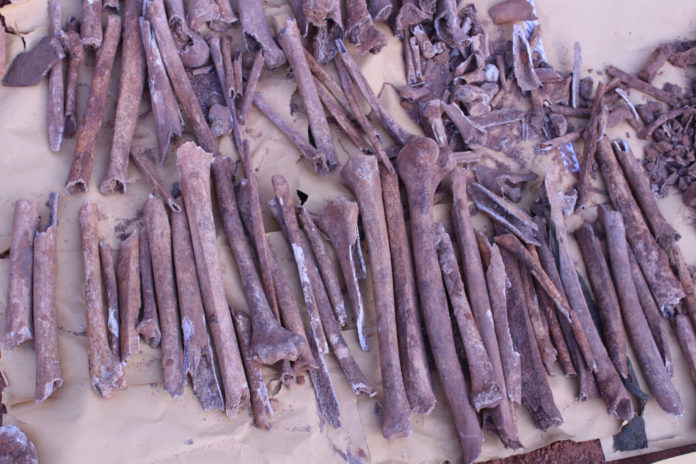
In his closing remarks at the end of TRRC hearings, Dr. Lamin Sise said, “the testimonies heard during the 871 days of public hearings brought pain and bewilderment to the population.
“They could not believe that the atrocities they were hearing from witnesses could occur in their country. A land of peaceful coexistence! A society imbued with a tolerance of the highest order!
“They could not believe that innocent and ordinary citizens and other nationals found in the territorial jurisdiction of The Gambia, many murdered in cold blood, would-be victims of the atrocities narrated”.
Today, the Gambia urgently needs peace and justice, the truth, and reconciliation in a divided country against toxic political polarization beyond tribalism living in a separate world or echo chambers, with each side prone to bias or motivated reasoning.
It feels like hatred for each other has become one more Gambian value, but we need to heal, reconcile, or unite and learn to tolerate each other. It is impossible to fully reveal the truth about every disappearance, every human rights violation.
However, justice must be served. But how? Unless we awed by examples of heroism, recalling the truth commission in South Africa to the amazement at Desmond Tutu and Nelson Mandela, at their moral grandeur, compassion, forgiveness if that is what we need in the field of transitional justice.
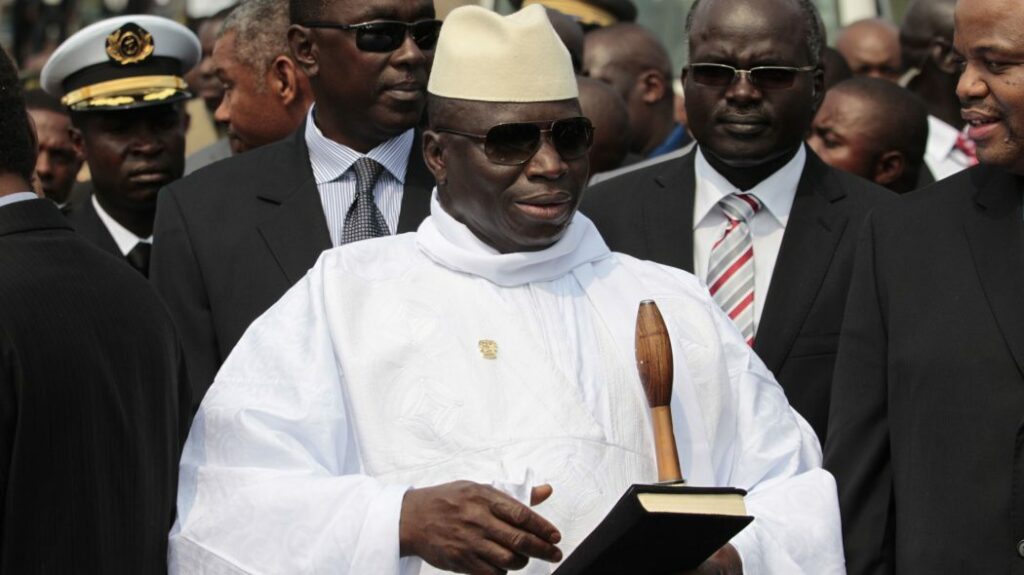
“We had a horrendous past,” he said. “We needed to look the beast in the eye so that the past would not hold us, hostage, anymore.”
Moreover, he went on, “To forgive is not just to be altruistic. It is the best form of self-interest.”
As Archbishop Tutu pointed out: “Retribution leads to a cycle of reprisal, leading to counter-reprisal in an inexorable movement, as in Rwanda, Northern Ireland, and in the former Yugoslavia. The only thing that can break that cycle, making possible a new beginning, is forgiveness.”
Moreover, if anyone were to lose sight of the higher goal, the guiding words of Nelson Mandela remain an inspiration. “Men of peace must not think about Retribution or recriminations. Courageous people do not fear forgiving for the sake of peace.”
The Truth, Reconciliation and Reparation Commission (TRRC) Act of 2017 was mandated to investigate gross human rights violations during Yahya Jammeh rule by holding live public hearings of the victims’ testimonies and confessed perpetrators of human rights violations and abuses in The Gambia twenty-two-year cruel dictatorship of Yahya Jammeh and his government.
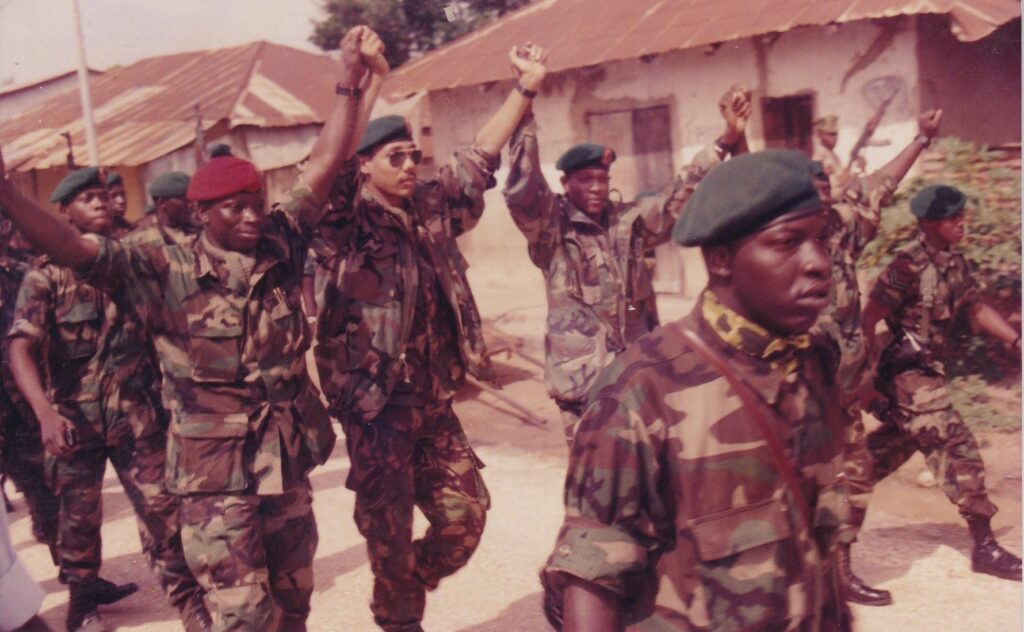
Reconciliation and Reparation Commission’s principal purpose was straightforward: to establish the truth of what happened during the twenty-two-year reign.
The (TRRC) is the high road taken by the leadership of President Barrow and his coalition government not by his political office but by dint of his moral courage and his commitment to reflect by his living up to which he believed.
His grace in this aspect of his leadership will indeed be his most incredible legacy and unmatched among contemporary leaders.
Furthermore, when is it time to let the past be past? Great crimes inevitably leave great legacies. How do societies move forward in the aftermath of great crimes? People can forgive, but it is better for them if and the country if they do about forgiveness.
The mechanism of the spirit of the TRRC can provide an enforceable right to adequate compensation, including a public apology to the victims of such an exercise.
It would be recalled that President Barrow set up the Truth, Reconciliation, and Reparation Commission (TRRC ACT,2017) enacted by the National Assembly that established the Commission. The principal purpose of the Truth, Reconciliation and Reparation Commission (TRRC) was straightforward.
The main objectives of the Commission are, among other things: to establish the truth of what happened during the twenty-two-year reign of former President Yahya Jammeh’s human rights violations and to “(a) create an impartial historical record of violations and abuses of human rights from July 1994 to January 2017, in order to-(i) promote healing and reconciliation, (ii) respond to the needs of the victims, (iii) address impunity, and (iv) prevent a repeat of the violations and abuses suffered by making recommendations for the establishment of appropriate preventive mechanisms including institutional and legal reforms;(b) establish and make known the fate or whereabouts of disappeared victims;(c) provide victims an opportunity to relate their accounts of the violations and abuses suffered; and(d) grant reparations to victims in appropriate cases”.
After twenty-two years of dictatorship, Gambians should remember that out of suffering, healing is possible. Out of the darkness, light shines brighter, and without sounding too much about it, Gambian people cannot have one without the other. Gambians can reconcile and rebuild our great country with this ethos and empathy.
This is an opportunity to dig deeper into our imaginations and collective intelligence for solutions, to make great art, to forge stronger human connections, to plant deeper community roots, to try to listen to each other, and reconcile our differences.
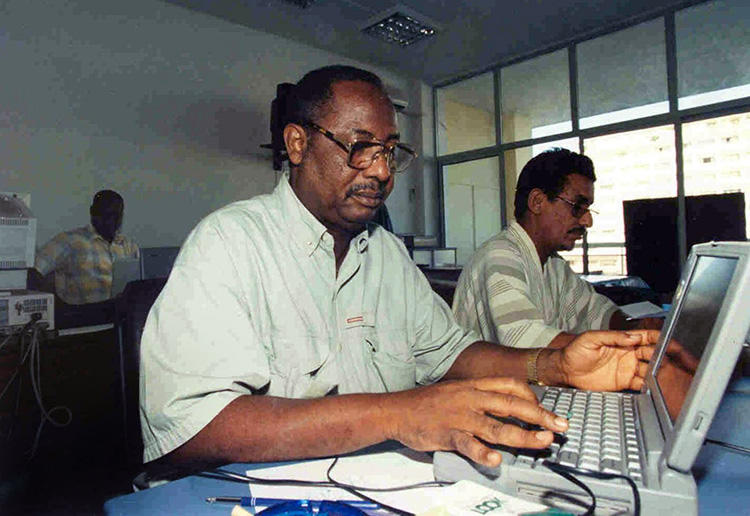
The ball is in our court. The Gambia can choose to embrace life and peaceful coexistence through national dialogue, reconciliation, and healing as we identify the local base, international and other mechanisms to address justice issues or wallow in cycles of wars and violence.
TRRC will be a tremendous opportunity to accept the darkness of our collective history and to proceed, without delay, with reconciliation and rebuilding our relationships as one Gambian people.
Let us not let it slip away. We can have a great nation when we reconcile and forgive.
By Alagi Yorro Jallow











Recent Comments